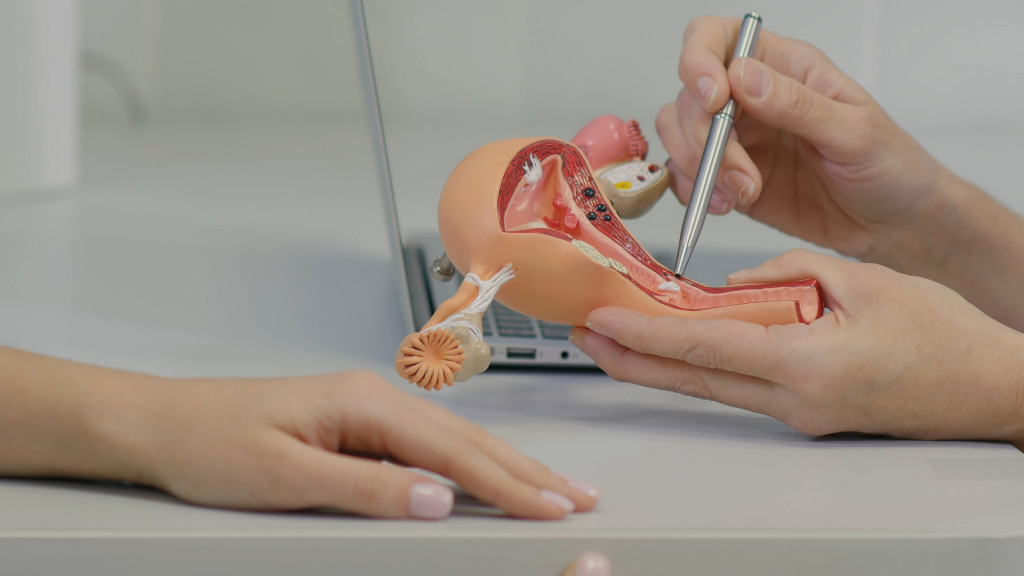Good reproductive health is essential for women of all ages. It helps you maintain your overall health and well-being and allows you to have children when you’re ready. Many things can affect your reproductive health, though, so it is important to be proactive about maintaining it. Here are six tips to help you do just that:
1. Get Regular Checkups and Screenings
It’s essential to see your doctor or gynecologist regularly for checkups and screenings, even if you feel healthy. These appointments allow your doctor to catch any potential problems early on when they are most easily treated. Your doctor can also answer questions about your reproductive health or contraception options.
There are services for women’s health that you can consult with an obstetrician-gynecologist about your reproductive health. These services can help you identify any health risks and provide guidance on how to reduce these risks.
2. Eat a Healthy Diet and Exercise Regularly
What we put into our bodies significantly impacts our overall health, including our reproductive health. Eating a diet rich in fruits, vegetables, whole grains, and lean protein is good for your body and your fertility. Your diet should also be low in saturated and trans fats, as well as simple carbohydrates.
Exercise is also essential; staying active can help reduce your risk of conditions like endometriosis and PCOS (polycystic ovary syndrome). To get active, you don’t need to visit the gym every day. Exercises that are great for you include swimming, taking a yoga class, and going for a quick walk. Aim for at least 30 minutes of exercise most days of the week.
3. Avoid Risky Behaviors
Certain behaviors can put our reproductive health at risk, such as smoking, using drugs, and having unprotected sex. If you smoke cigarettes, it’s important to quit; smoking can damage your eggs and lead to infertility. If you do choose to have sex, always use protection to reduce your risk of STDs (sexually transmitted diseases) and unwanted pregnancy.
You should also avoid using drugs, as they can damage your reproductive organs and lead to fertility problems. If you’re struggling with drug abuse, there are many resources available to help you get clean and sober.

4. Know Your Family History
Some reproductive health conditions are hereditary, so it is important to know if any women in your family have had ovarian cancer, breast cancer, endometriosis, PCOS, etc. This knowledge can help you and your doctor catches any potential problems early on. Here are some questions to ask your family members:
- Has anyone been diagnosed with cancer before age 50?
- Has anyone had a hysterectomy?
- Have any women in your family struggled with fertility?
5. Manage Stress
Chronic stress can negatively impact our reproductive health, so it is important to find ways to manage it. Taking stress-reducing measures, such as yoga, meditation, and deep breathing, can help. If you’re struggling to cope with stress on your own, consider talking to a therapist or counselor.
You can also try to avoid stressful situations when possible and make time for things you enjoy. Taking care of yourself is crucial for maintaining good reproductive health. So, don’t be afraid to put your needs first.
6. Be Aware of the Signs and Symptoms of Reproductive Health Conditions
Many different reproductive health conditions exist, such as endometriosis, PCOS, ovarian cancer, and breast cancer. It’s important to be aware of the signs and symptoms of these conditions so you can catch any problems early on.
Some common signs and symptoms of reproductive health conditions include:
- Abnormal bleeding
- Painful periods
- Pelvic pain
- Pain during sex
- Breast changes
- Unusual discharge
If you experience these symptoms, be sure to see your doctor immediately. Early detection is key to successful treatment. So, don’t ignore any potential warning signs.
Bonus Tip: Keep Your Regular Obstetrician-Gynecologist Appointments
It’s important to see your obstetrician-gynecologist (OB/GYN) regularly, even if you’re not currently experiencing any problems. OB/GYNs can provide guidance on maintaining good reproductive health and catching any potential issues early on. Most women should see their OB/GYN at least once a year.
If you’re sexually active, you may need to be seen more frequently. And, if you’re over the age of 35, you should talk to your doctor about how often you need to be seen. Remember, your reproductive health is essential, so don’t neglect it.
Maintaining good reproductive health is vital for women of all ages. You can protect your reproductive health and maintain your overall well-being by getting regular checkups and screenings, eating a healthy diet, and exercising regularly.

